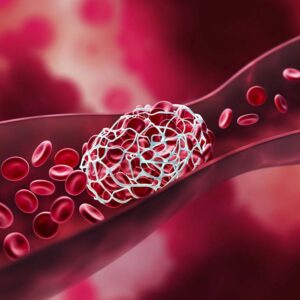
This "Medicine" Could Kill You
There’s one drug (some call it “medicine”) that is so potentially harmful even the FDA has taken notice.
Each year, overdoses are estimated to kill over 458 people, send over 56,000 to the emergency room, and lead to 2,600 hospitalizations.[1]
(To answer your question, Bobby, that’s about two people killed between Wednesday’s issue and today.)
And chances are good it’s in your medicine cabinet right now.
What is it?
None other, that good ol’ Tylenol (acetaminophen).
Now, to be fair, a good number of the folks harmed by acetaminophen have intentionally overdosed on the product by trying to commit suicide.
But think about it: A drug that’s a first choice for someone who want to kill themselves is readily available over the counter.
Ok, to be even fairer, it’s true most things available over the counter could kill you if you took too much. Heck, even water can kill you.
The problem is that acetaminophen can become extremely harmful or outright deadly with just a few extra doses. Of the estimated 458 acetaminophen-related deaths each year, about 150 are caused by inadvertently taking too much of the drug.
According to the FDA, as few as just two additional extra-strength pills can cause liver damage. And if taken all at once, less than four times the maximum daily dose can be deadly.
And for some people, even taking the recommended dose can lead to severe injury and death.
The problem compounds because acetaminophen is found in many different products, and people don’t always know it’s in there. Aside from straight pain relievers, cough syrups and even sleep aids can contain the drug. That’s why it’s so important to read labels.
Combining acetaminophen with alcohol can also lead to severe liver injury. That’s why you should never treat a hangover with Tylenol.
Oh, and acetaminophen can also cause fatal skin reactions, literally causing the skin to melt off your face.
After reading that I came across this ad, and it doesn’t seem so cute anymore:

Even FDA acknowledges the issues with acetaminophen, though they are far from banning it.
In 2009, 32 years after an expert panel advised FDA to add a warning advising of the potential for liver toxicity, they finally did so.
In 2011, FDA declared that prescription acetaminophen products had to decrease the per-capsule dose to no more than 325mg. But this limit doesn’t apply to over-the-counter (OTC) products.
Way to go, FDA!
And as Ken wrote in to tell me: “Most doctors do not read the FDA reports on the drugs they prescribe. A doctor told me it’s not important. WOW. There can be warnings about mixing drugs in those reports.”
You got that right, Ken.
Not only should you be careful how much of a drug you take, but you should also make sure it doesn’t interact with any other medications or herbal supplements you’re taking.
Growing up, Tylenol was our pain reliever of choice. It worked, and my mom, a nurse, made sure we knew not to take more than what the bottle said. We thought it was safe.
With what I know now about the risk for liver damage or death, I won’t touch the stuff. I like to save my liver for more important things, like its necessary role in detoxing the chemicals and pesticides I can’t avoid (and also, admittedly, processing my Friday night cocktails).
So the question is if you have a headache/backache/arthritis, what should you take?
Non-steroidal anti-inflammatory drugs (NSAIDs), such as ibuprofen (Advil/Motrin), aspirin, and naproxen sodium (Aleve), are not without their own risks.
They can cause stomach ulcers, bleeding, or holes in the intestines, which can lead to death. All NSAIDs (except for aspirin) have also been linked to a higher risk of heart attack or stroke.
But in regard to causing death, NSAIDs seem to be a touch safer than acetaminophen. From 2001-2010, deaths from acetaminophen were about twice the amount of those from all other OTC pain relievers combined.
So while not without risks, I believe NSAIDs to be relatively safer than acetaminophen, especially if you only take them occasionally. But if you have any stomach or intestinal issues like ulcers, or have a high risk of cardiovascular events, they probably are not a good choice.
For chronic pain, you need to get to the root of the problem.
Frequent headaches? Get your eyesight checked.
I used to suffer from chronic headaches. When I finally got my eyes examined, I found out I had a muscular imbalance causing my eyes to strain. After getting them fixed through surgery, no more headaches!
Headaches can also be caused by deficiencies in certain nutrients, like magnesium, as well as by simple dehydration.
If you have pain due to arthritis or degenerative disc disease, you’ll probably need more support than just extra vitamins and minerals (though there have been cases where certain minerals, like boron, have eased or eliminated joint pain for some people).
Though research has been mixed over the years, a new trial from the University of Maryland School of Medicine just came out showing six months of glucosamine and chondroitin supplementation reduced osteoarthritis pain just as effectively as the prescription drug Celebrex.
In another study, the natural combo was actually able to reduce cartilage loss in the knee.
However, glucosamine and chondroitin need to be taken for at least six months to notice an effect, and are best taken long-term. And the combo just doesn’t seem to work for at least half the people who try it.
Food intolerances can also contribute to joint pain, which I wrote about in this article. I also wrote about some other herbs that can help provide pain relief.
Finding a good doctor that practices functional medicine can make a huge difference. Doctors that practice functional medicine are more apt to help you discover the underlying cause of your pain and the best natural treatments that work for you, rather than writing you a prescription just to mask the symptoms.
But if you’re desperate for relief and really must use a drug pain reliever, I urge you to please use caution. Don’t exceed the recommended dose. Use the lowest possible dose you can. Don’t combine it with alcohol. Check how it might interact with other medications you are taking. And don’t take it unless you really must.
Until next time,
Jasmine LeMaster
[1] Lee WM. Acetaminophen and the U.S. Acute Liver Failure Study Group: lowering the risks of hepatic failure. Hepatology. 2004 Jul;40(1):6-9.
View More Free Articles
Take the SHORTER Path to Dramatically Better Health
Are you tired of fitness gurus preaching the virtues of 5 AM workouts and pushing Olympic-level training regimens? Their narrative can feel exhausting and entirely unattainable. But before you toss in the towel completely, I’ve got news that might just put a spring back into your step. A groundbreaking new study reveals that the key...
Unexpected Perks of Your Coffee Habit Revealed!
We all know that the first cup of coffee in the morning can FEEL like a lifesaver. But what if it might actually BE saving your life? A groundbreaking new study suggests that your daily coffee habit could be protecting you from not just one but multiple chronic diseases. Let’s pour over this fascinating research…...
The TRUTH About Diabetes Drugs and Brain Aging
You’ve probably seen the gushing headlines… Most say something like, “Common diabetes drug protects the brain against aging!” And let’s face it, that sounds fantastic. After all, who doesn’t want to keep their brain young and in tip-top shape? The headlines refer to the results of a new study that suggests the widely prescribed type...
Hidden Smartphone Danger Puts You at Risk
Remember when we thought cell phones were just something for young folks to obsess over? Back when we were convinced they were nothing more than a passing fad? Well, times certainly have changed. Now, most people… including many of us older folks… have jumped on the smartphone bandwagon. Heck, some of us are practically as...
Preserve Your Mobility with “Agile Aging” Exercises
Aging has a way of humbling us. You lose hair where you want to keep it—and often end up growing it where you don’t. With every passing year, your eyesight fades, and your waistline expands. And as your once quick pace begins to slow, you fear developing the dreaded “senior shuffle.” But here’s the thing....
Yes, Lazy Saturday Lie-Ins Can BOOST Your Health
Are you burning the midnight oil during the week and catching up on sleep on weekends? Well, I’ve got some news that might help you feel less guilty about those lazy Saturday mornings. A new study suggests that weekend lie-ins might be doing far more than just helping you feel refreshed. Experts say they could...
Mailbag: 7 Hidden Culprits Behind Your Weight Gain
“Why am I gaining weight, even though I am watching what I am eating?” – Battling the Bulge Dear Battling, Gaining weight when you’re not trying to is frustrating. And it just gets worse as we age… often regardless of our diet. The truth is that various factors can promote weight gain even when you’re...
Popular Artificial Sweetener Linked to Dangerous Heart Risk
Remember when erythritol was the darling of the health food world? Well, this popular sugar substitute might not be as sweet a deal as we were led to believe… A shocking new study reveals a dark side to this widely used artificial sweetener. It turns out erythritol is associated with a dangerous—and even deadly—heart risk....
Cracking the Code on Chronic Inflammation
Inflammation and obesity are the evil tag team at the heart of nearly every major disease we face—from diabetes to obesity. What starts as a normal, healthy process to fend off dangerous invaders can quickly fan into the flames of chronic inflammation… and that includes in your gut. The trouble is almost no one has...
Dreaming of Better Sleep? Your Gut Holds the Key
Do you toss and turn at night? If so, you’re not alone. In fact, if you’re a senior over 65, you join nearly 17 percent of your peers who ALSO struggle with poor sleep quality. But science has uncovered a natural supplement that not only could help you catch more Z’s but can also give...









